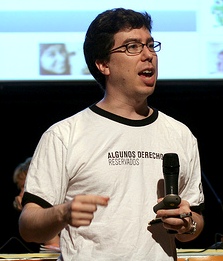
Jonathan L. Zittrain is an American professor of Internet law and the George Bemis Professor of International Law at Harvard Law School. He is also a professor at the Harvard Kennedy School, a professor of computer science at the Harvard School of Engineering and Applied Sciences, and co-founder and director of the Berkman Klein Center for Internet & Society. Previously, Zittrain was Professor of Internet Governance and Regulation at the Oxford Internet Institute of the University of Oxford and visiting professor at the New York University School of Law and Stanford Law School. He is the author of The Future of the Internet and How to Stop It as well as co-editor of the books, Access Denied, Access Controlled, and Access Contested.

Stanford Law School (SLS) is the law school of Stanford University, a private research university near Palo Alto, California. Established in 1893, Stanford Law had an acceptance rate of 6.28% in 2021, the second-lowest of any law school in the country. George Triantis currently serves as Dean.
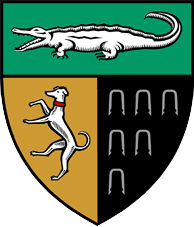
Yale Law School (YLS) is the law school of Yale University, a private research university in New Haven, Connecticut. It was established in 1824. The 2020–21 acceptance rate was 4%, the lowest of any law school in the United States. Its yield rate of 87% is also consistently the highest of any law school in the United States.
Center for Democracy & Technology (CDT) is a Washington, D.C.-based 501(c)(3) nonprofit organisation that advocates for digital rights and freedom of expression. CDT seeks to promote legislation that enables individuals to use the internet for purposes of well-intent, while at the same time reducing its potential for harm. It advocates for transparency, accountability, and limiting the collection of personal information.

The Berkman Klein Center for Internet & Society is a research center at Harvard University that focuses on the study of cyberspace. Founded at Harvard Law School, the center traditionally focused on internet-related legal issues. On May 15, 2008, the center was elevated to an interfaculty initiative of Harvard University as a whole. It is named after the Berkman family. On July 5, 2016, the center added "Klein" to its name following a gift of $15 million from Michael R. Klein.
The Access to Knowledge (A2K) movement is a loose collection of civil society groups, governments, and individuals converging on the idea that access to knowledge should be linked to fundamental principles of justice, freedom, and economic development.

Michael Allen Geist is a Canadian academic, and the Canada Research Chair in Internet and E-Commerce Law at the University of Ottawa. He is the editor of four books on copyright law and privacy law, and he edits two newsletters on Canadian information technology and privacy law.

Yochai Benkler is an Israeli-American author and the Berkman Professor of Entrepreneurial Legal Studies at Harvard Law School. He is also a faculty co-director of the Berkman Klein Center for Internet & Society at Harvard University. In academia he is best known for coining the term commons-based peer production and his widely cited 2006 book The Wealth of Networks.
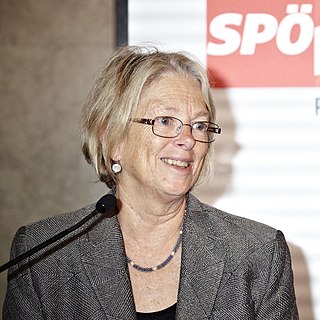
Pamela Samuelson is an American legal scholar, activist, and philanthropist. She is the Richard M. Sherman '74 Distinguished Professor of Law at the University of California, Berkeley, School of Law, where she has been a member of the faculty since 1996. She holds a joint appointment at the UC Berkeley School of Information. She is a co-founder of Authors Alliance and a co-director of the Berkeley Center for Law and Technology.

Jack M. Balkin is an American legal scholar. He is the Knight Professor of Constitutional Law and the First Amendment at Yale Law School. Balkin is the founder and director of the Yale Information Society Project (ISP), a research center whose mission is "to study the implications of the Internet, telecommunications, and the new information technologies for law and society." He also directs the Knight Law and Media Program and the Abrams Institute for Free Expression at Yale Law School.

Use of the Internet in Yemen began in 1996 through the ISPs TeleYemen and the Public Telecommunications Corporation. The country has 8,243,772 internet users, 15,000,000 mobile cellular telephone subscriptions, more than 1,160 .ye domains, and around 3,631,200 Facebook users. By July 2016, 6,732,928 people were Internet users.

Jessica Litman is a leading intellectual property scholar. She has been ranked as one of the most-cited U.S. law professors in the field of intellectual property/cyberlaw.
Source protection, sometimes also referred to as source confidentiality or in the U.S. as the reporter's privilege, is a right accorded to journalists under the laws of many countries, as well as under international law. It prohibits authorities, including the courts, from compelling a journalist to reveal the identity of an anonymous source for a story. The right is based on a recognition that without a strong guarantee of anonymity, many would be deterred from coming forward and sharing information of public interests with journalists.
Internet censorship in the United States is the suppression of information published or viewed on the Internet in the United States. The First Amendment of the United States Constitution protects freedom of speech and expression against federal, state, and local government censorship.
The Columbia Institute for Tele-Information (CITI) is one of several research centers for Columbia Business School, focusing on strategy, management, and policy issues in telecommunications, computing, and electronic mass media. It aims to address the large and dynamic telecommunications and media industry that has expanded horizontally and vertically drive by technology, entrepreneurship and policy.
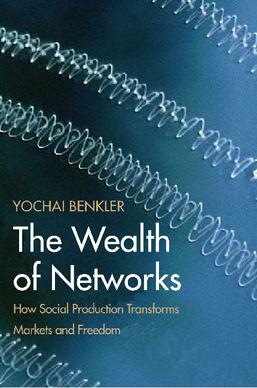
The Wealth of Networks: How Social Production Transforms Markets and Freedom is a book by Harvard Law School professor Yochai Benkler published by Yale University Press on April 3, 2006. The book has been recognized as one of the most influential works of its time concerning the rise and impact of the Internet on the society, particularly in the sphere of economics. It also helped popularize the term Benkler coined few years earlier, the commons-based peer production (CBPP).
Internet in Tajikistan became present within the country during the early 1990s. Tajikistan had just become independent in 1992, with Emomali Rahmon as the new ruler, when the internet was introduced to the country. Nevertheless, it was after over a decade that the country’s internet became more accessible. The history of the internet’s foundation in Tajikistan extends from 1992 to present-day Tajikistan. By 2009, internet penetration had developed since the initial conception of the internet in Tajikistan and Internet Service Providers (ISPs) had increased in number. In terms of the ISPs, Tajikistan primarily relied upon satellite-based connections using Discovery Global Networks.
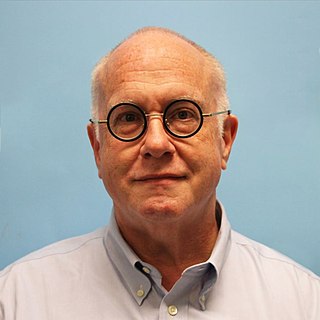
Michael Wayne Godwin is an American attorney and author. He was the first staff counsel of the Electronic Frontier Foundation (EFF), and he created the Internet adage Godwin's law and the notion of an Internet meme. From July 2007 to October 2010, he was general counsel for the Wikimedia Foundation. In March 2011, he was elected to the Open Source Initiative board. Godwin has served as a contributing editor of Reason magazine since 1994. In April 2019, he was elected to the Internet Society board. From 2015 to 2020, he was general counsel and director of innovation policy at the R Street Institute. In August 2020, he and the Blackstone Law Group filed a lawsuit against the Trump administration on behalf of the employees of TikTok, and worked there between June 2021 and June 2022. Since October 2022, he has worked as the policy and privacy lead at Anonym, a "privacy-safe advertising" startup.
Public Knowledge is an American non-profit public interest group based in Washington, D.C. Founded in 2001 by David Bollier, Gigi Sohn, and Laurie Racine, Public Knowledge is primarily involved in the fields of intellectual property law, competition and choice in the digital marketplace, and an open standards/end-to-end internet.
Margot E. Kaminski is an American professor who works at the intersection of artificial intelligence, privacy, information governance, and online civil liberties. She is currently an Associate Professor at the University of Colorado Law School and the Director of Privacy Initiative at the Silicon Flatirons Center for Law, Technology, and Entrepreneurship. Her research examines the impacts of new technologies, including autonomous systems, on individual rights to help shape policy and regulation of AI.













